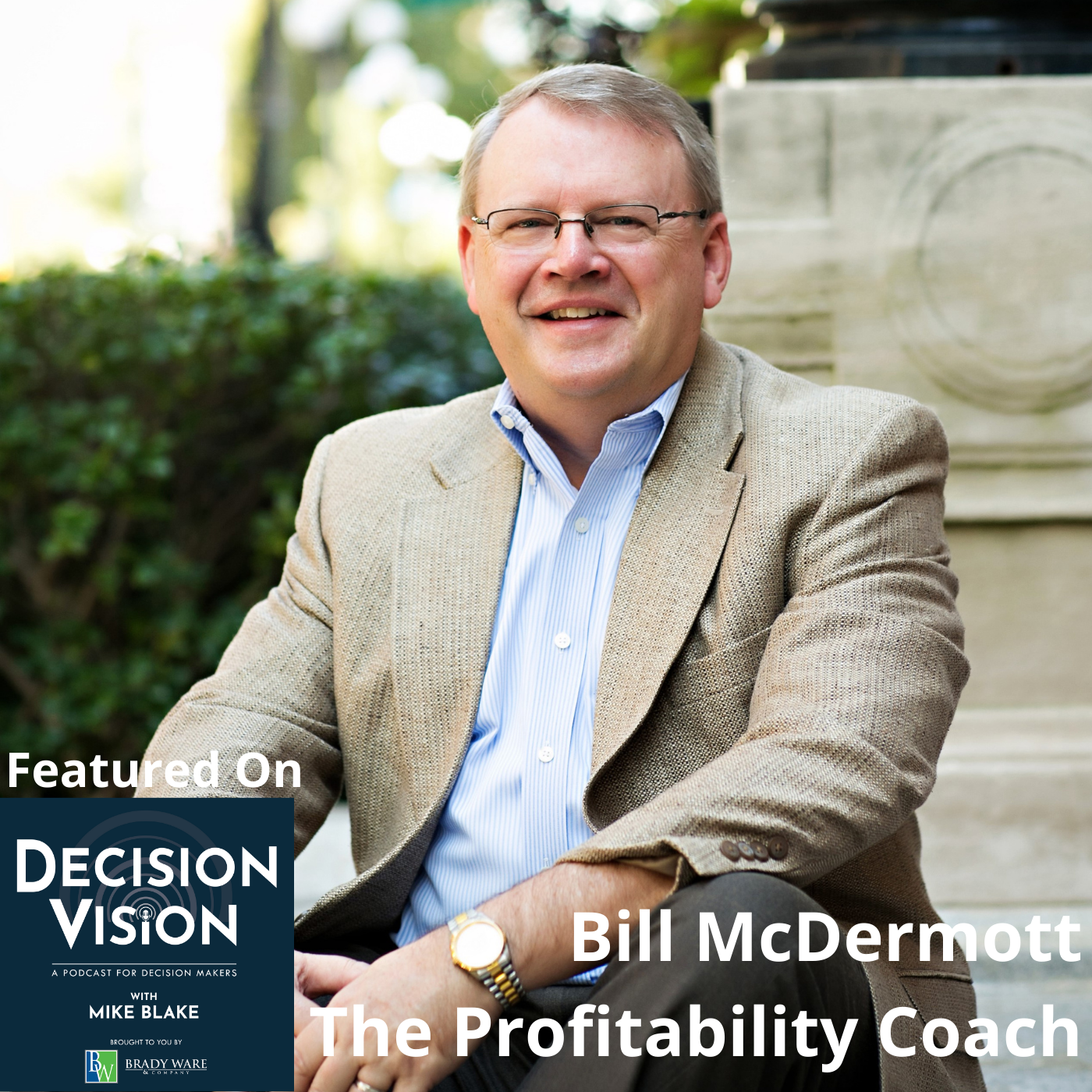

The “5 C’s” a Business Must Pass to Get a Loan Approved, with Bill McDermott, The Profitability Coach
Bill McDermott: [00:00:00] The first thing is a business owner has to put together a loan package. That loan package is generally going to have three years’ worth of historical financial information. It may have the most recent interim financials. We just finished January, so a January balance sheet and an income statement. It will include a personal financial statement of any owner that has more than 20% ownership because a bank looks at the people that make up the ownership of the business. Yes, they are loaning to the business but, generally, that business is a reflection of the people that are running it.
Bill McDermott: [00:00:45] So, first part is the loan package. The second part, generally, a credit interview. Again, as I mentioned, banks are looking at everything in terms of risk. So, they will have analyzed those financials. They’re going to have some underwriting questions, what’s going on in the business. But yeah, to your point about the Cs, there are five Cs that as they’re going through that interview. They’re going to be evaluating the character of the borrowers. They’re going to be looking at the cash flow. Does the business have the ability to pay it back? They’re going to be looking at credit score. Generally, the business owner’s personal credit score is the proxy for the business. They’re going to be looking at collateral. Do they have the ability to secure the loan? And then, the last thing has nothing to do with the business or the business owner, but they’re looking at conditions – specifically, economic conditions.
Bill McDermott: [00:01:41] So, we just are, hopefully, on the tail end of a pandemic, but the economic conditions and the economic uncertainty have played a big role in banks’ willingness to loan money in the current economic environment. And so, credit has tightened because conditions of economic uncertainty have tightened. But that’s generally the process, one package, credit interview, evaluating the five Cs. It’s really important for the business owner to have a clear request, and it’s also very important for the business owner to have a compelling case. Why should the bank loan them money? How does the company present itself in terms of risk? And if there are any risks, can those risks be mitigated to help the bank approve the loan?
Bill McDermott, The Profitability Coach
Bill McDermott is the Founder and CEO of McDermott Financial Solutions, serving as a profitability coach to his clients. When business owners want to increase their profitability, they don’t have the expertise to know where to start or what to do. Bill leverages his knowledge and relationships from 32 years as a banker to identify the hurdles getting in the way and create a plan to deliver profitability they never thought possible.
Bill currently serves as Treasurer for the Atlanta Executive Forum and has held previous positions as a board member for the Kennesaw State University Entrepreneurship Center and Gwinnett Habitat for Humanity and Treasurer for CEO NetWeavers. Bill is a graduate of Wake Forest University and he and his wife, Martha have called Atlanta home for over 40 years. Outside of work, Bill enjoys golf, traveling, and gardening.
Connect with Bill on LinkedIn and Twitter and follow McDermott Financial Solutions on LinkedIn.
Listen to Bill’s full interview on Decision Vision here.
The “One Minute Interview” series is produced by John Ray and in the North Fulton studio of Business RadioX® in Alpharetta. You can find the full archive of shows by following this link.
Renasant Bank has humble roots, starting in 1904 as a $100,000 bank in a Lee County, Mississippi, bakery. Since then, Renasant has grown to become one of the Southeast’s strongest financial institutions with over $13 billion in assets and more than 190 banking, lending, wealth management and financial services offices in Mississippi, Alabama, Tennessee, Georgia and Florida. All of Renasant’s success stems from each of their banker’s commitment to investing in their communities as a way of better understanding the people they serve. At Renasant Bank, they understand you because they work and live alongside you every day.















